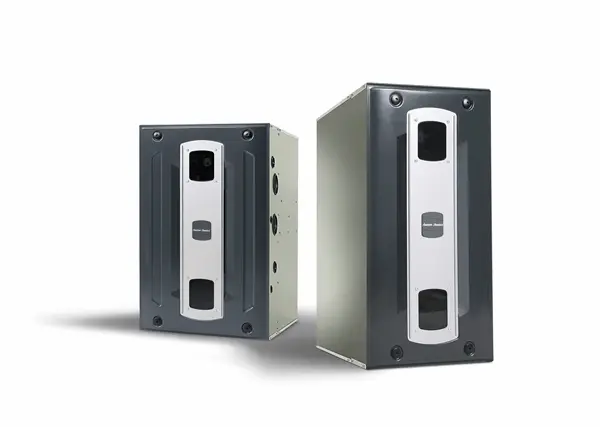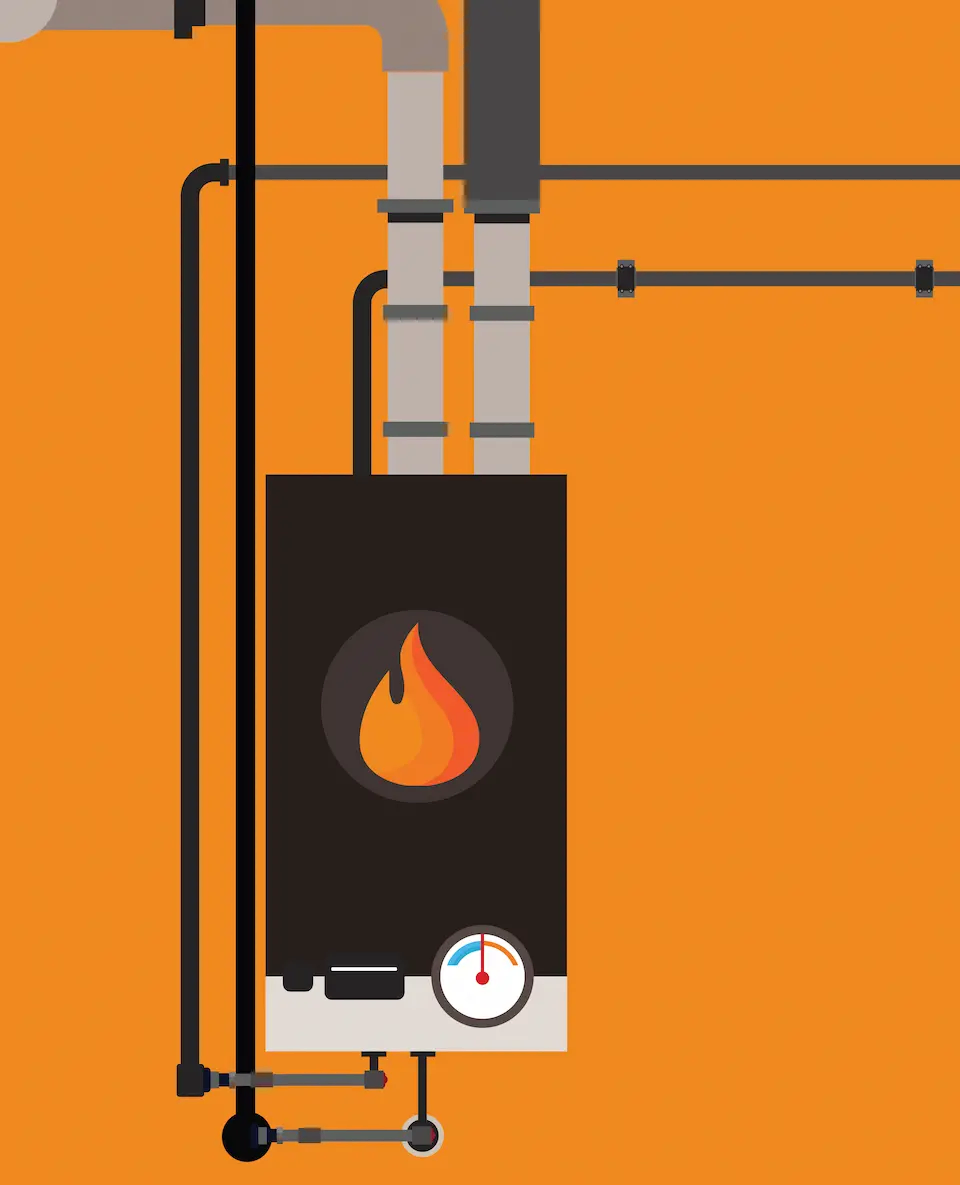October 16, 2023
What Size Furnace Do I Need for My Home?


As the temperatures begin to drop in Raleigh, North Carolina, the warmth and comfort of your home become increasingly important. One of the fundamental factors that contribute to a cozy and energy-efficient living space is your furnace. But here’s the catch: choosing the right size furnace for your home is not as simple as it might seem.
When homeowners ask themselves, “What size furnace do I need?” they often make the mistake of either oversizing or undersizing their furnaces, leading to issues like increased energy bills, reduced comfort, and even premature equipment failure.
At Bowman Mechanical Services, your trusted HVAC company in Raleigh, NC, we understand the unique heating needs of this region and have the expertise to help you find the perfect furnace size for your home.
What is the Heating Load for My Furnace?
Heating load is the cornerstone of determining the right furnace size for your home, and grasping its significance is the first step in making informed decisions about your heating system.
Heating load refers to the amount of heat energy your home requires to maintain a comfortable indoor temperature during the colder months. Understanding your home’s heating load is essential because it ensures that your furnace is neither overpowered nor underpowered. An overpowered furnace can lead to excessive energy consumption and discomfort, while an underpowered one will struggle to maintain warmth, causing inefficiency and discomfort as well.
Local Climate
The climate in Raleigh, North Carolina, plays a significant role in determining your home’s heating load. Winters here can be relatively mild compared to other regions, but we still experience chilly days and nights. It’s vital to consider the local climate and other factors when sizing your furnace.
Home Size and Layout
The size and layout of your home directly affect its furnace capacity heating load. Larger homes generally require more heating capacity per square foot to avoid uneven heating, while open layouts might distribute heat differently compared to more compartmentalized designs. It’s important to understand how many British Thermal Units (BTUs) per square foot you will need to heat your house.
Insulation Quality
The quality of your home’s insulation is a critical factor in what size furnace you need. Well-insulated homes retain heat better, reducing the heating load of HVAC systems. Conversely, poor insulation leads to more heat loss, increasing the load on your gas furnace.
Windows and Doors
The number, type, and condition of windows and doors impact your furnace efficiency heat loss and gain. Older or poorly insulated windows and doors can significantly affect your furnace’s efficiency.
Building Materials
The materials used in constructing your home can influence heat retention. Brick or stone homes, for instance, might have different heating load requirements to adequately heat your home compared to homes with other materials.
Common Furnace Sizing Mistakes
When it comes to sizing a furnace, homeowners often fall into several traps.
These common mistakes include:
- Relying solely on previous equipment: Many homeowners simply replace an old furnace with a similar-sized unit without considering changes in their home’s heating load. This can lead to mismatched capacity.
- Guesswork: Some homeowners attempt to size their furnaces based on rough estimates or rule-of-thumb guidelines, which can result in a smaller furnace or larger furnace than needed.
- Ignoring local climate: Failing to consider the specific climate conditions in Raleigh, NC, can lead to oversizing or undersizing the size furnace needed.
- Neglecting home improvements: Homeowners who have upgraded their insulation, windows, or doors might forget to account for these improvements when sizing a new furnace.
What Are the Consequences of Installing the Wrong Size Furnace?
Selecting the right size furnace for your home is a critical decision that can significantly impact your comfort, energy efficiency, and even your budget. A gas or electric furnace that is too large or too small for your space can lead to a range of issues that may not be immediately obvious but can have long-lasting consequences.
These consequences include:
- Reduced efficiency: Selecting an oversized furnace can lead to short cycling, where the unit frequently turns on and off. This not only reduces efficiency but also places unnecessary wear and tear on the equipment.
- Increased energy bills: Oversizing a furnace can result in higher energy bills as the system consumes more energy than necessary to heat your home.
- Comfort issues: An oversized furnace may heat your home too quickly, leading to uneven temperatures and discomfort. Conversely, an undersized furnace might struggle to maintain a comfortable temperature throughout your space.
- Shortened equipment lifespan: Both oversized and undersized furnaces can experience premature wear and tear, leading to a shorter lifespan. This can be a costly mistake, as heating equipment is a significant investment.
Importance of Furnace Sizing by an HVAC Professional
Selecting the right furnace size isn’t a task to be taken lightly, and the expertise of a professional HVAC technician can make all the difference. When it comes to sizing your furnace, the experience and knowledge of a professional HVAC technician are invaluable.
Accurate Assessment
HVAC technicians are trained to evaluate all the factors affecting your heating load, from the size and layout of your home to the local climate and insulation quality.
Preventing Costly Mistakes
Professionals can help you avoid the common sizing errors we discussed earlier, ensuring that your furnace is long-lasting and matches your home’s heating needs precisely.
Optimal Efficiency
A correctly sized furnace operates at peak efficiency, saving you money on energy bills while keeping your home comfortable.
Long-term Savings
Professional sizing not only benefits you in the short term but also ensures the longevity of your furnace, reducing the need for premature replacements.
Steps to Determine Furnace Size
Manual J calculations are a comprehensive and standardized method used in the heating, ventilation, and air conditioning industry to accurately determine the heating and cooling load requirements of a building. This calculation is crucial when designing or sizing HVAC systems for homes because it ensures that the system is neither oversized nor undersized, leading to optimal comfort, energy efficiency, and cost savings.
This involves several crucial steps, each contributing to a heating system that’s perfectly tailored to your home’s needs.
Collecting Data About the Home
The first step in the Manual J process involves gathering a wealth of data about your home. This includes the home’s square footage, layout, number of rooms, and details about the insulation, windows, and doors. Every piece of information is vital for determining accurate furnace size.
Calculating Heating Load
Once the data is collected, specialized software is used to perform intricate calculations for furnace size. A furnace size calculator factors in the specifics of your home, such as the local climate in Raleigh, North Carolina, and the effects of insulation, windows, and doors on heat gain and loss.
Selecting the Right Furnace Size
Based on the heating load calculations, the Manual J process guides HVAC technicians to choose the right size furnace that perfectly matches your home’s heating requirements. This ensures that your furnace operates at peak efficiency and provides consistent comfort.

Benefits of Properly Sized Furnace
Selecting the right size furnace for your home is not just about comfort; it brings a host of advantages that can enhance your living experience.
Energy Efficiency
When your furnace is the right size, it operates at its highest efficiency level. This means it consumes just the right amount of fuel for a gas furnace or electricity for an electric furnace to maintain your desired indoor temperature, minimizing energy waste. Consequently, you’ll notice a significant reduction in your energy bills.
Consistent Heating and Comfort
A furnace that’s the right size can maintain consistent and even temperatures throughout your home. No more chilly spots or overheated rooms. You’ll enjoy a consistently comfortable indoor environment, enhancing your overall quality of life during the colder months.
Extended Equipment Lifespan
Oversized or undersized furnaces are more likely to experience premature wear and tear due to frequent cycling or struggling to meet heating demands. In contrast, a properly sized furnace operates efficiently and experiences less stress, leading to a longer lifespan for your heating equipment. This can save you money on costly repairs and replacements down the road.
Lower Energy Bills
Improved energy efficiency isn’t just good for the environment; it’s also excellent for your wallet. With an efficient furnace, you’ll notice substantial savings on your monthly energy bills. These savings can add up over time, making the investment in professional sizing a wise financial decision.
Contact Our Raleigh Furnace Experts Today
Are you ready to experience the benefits of a perfectly sized furnace for your Raleigh, NC home? Don’t let another winter season pass with an inefficient or uncomfortable heating system. Take the first step towards a warmer, more energy-efficient home by contacting our Raleigh furnace experts at Bowman Mechanical Services today.
Our team of HVAC professionals is here to ensure your home is equipped with the right-sized furnace, delivering exceptional comfort, energy savings, and peace of mind. With years of expertise and a commitment to customer satisfaction, we’re ready to transform your heating experience.
Contact us today by calling [phone] or filling out the contact form below to get started.

